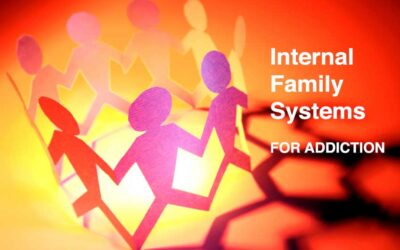Anger is an uncomfortable emotion for most people. We often wonder what to do with it when we feel it, or want desperately to get rid of it because we associate it with being out-of-control, find it to be destructive, or are afraid it.
The Benefits of Anger:
Anger has gotten a bad reputation, but like any emotion can be quite useful and adaptive at times.
Just imagine the life of someone who cannot feel angry. Such a person will likely feel compelled to make their life all about other people’s needs. He or she will have a hard time saying “no” to other people, because to do so requires the ability to feel inside of oneself where one’s boundaries are, and to assess what is fair and just, and therefore what one will do and not do.
Anger is that initial alert that things are out of balance or that a boundary has been crossed. It calls upon us to be assertive: To say what we want or need even when it goes against what somebody else might want or need.
A person who is out of touch with themselves and therefore does not experience this “alarm” could therefore easily become stuck in a series of one-sided relationships. They might become a perpetual care-taker, but have nobody there to take care of them. Or they may attract a series of people who do not know how to set limits on their own desires, or might purposely take advantage of the self-sacrificing nature of the unassertive person.
Ultimately without access to what we could call righteous anger, we would not be able to build or sustain healthy relationships based on give and take, and would find ourselves becoming like a chameleon who adapts and changes to each situation, because we wouldn’t really know how we are different from others. Many people who are uncomfortable with anger therefore end up living rather passive lives and have a hard time defining who they are outside of the use or value they have for others.
Isn’t Anger Destructive?
The problem is that people confuse the feeling of anger with the expression of anger, and may have images in their mind of anger as an explosive and destructive emotion that is quite dangerous and out of control. They may be thinking of the anger that led to domestic violence at home, or the anger that got them fired from a job because they told their boss off. If they were the recipient of this kind of anger, they may be reminded of fear, or if they were the one’s who lost control of their temper, they may be reminded of the sense of shame or remorse they felt after “letting someone have it”.
Ironically, these kinds of violent or exaggerated expressions of anger, are often the result of not paying sufficient attention to anger in the first place.
Don’t Ignore Your Anger:
Anger is one word, but covers a whole spectrum of angry emotions on a continuum from annoyance and irritability on the one end to murderous rage on the other.
Oftentimes, a person will have signs of irritability or annoyance long before they simply become irate. But if they are ashamed of past outbursts or afraid of the experience of anger in themselves or others, they will try their best to ignore these early signs.
This means that they will not have the opportunity to assess what their anger is really about, and will not have the opportunity to address whatever feels boundary violating with an appropriate assertive response. The anger therefore has nowhere to go and may become bottled up until it erupts in a moment of out-of-control behavior.
Why Am I Angry?
At other times, a person may experience intense anger very quickly, and may bypass the feeling of frustration, annoyance, and irritation altogether. In these cases, it often pays to step back to examine what the anger is really about…
If a person is able to be curious about why they feel so angry all of a sudden, they will often discover that their anger is a response to a more vulnerable emotion, and that that this more vulnerable emotion was triggered, causing anger to arise as a natural defense.
Anger mobilizes a person to defend themselves or demarcate a territory. But what is that thing that needs defending? Or what is that territory that is threatened?
Is it my self-esteem that has plummeted, making me feel like I want to hurt this person who doesn’t seem to respect or value me? Or is the territory that is threatened my sense of having a place in my relationship, having a voice, having a role to play, mattering?
Anger often offers us valuable insights into ways in which we feel wounded, rejected, unappreciated, afraid of losing someone, or unable to be ourselves.
It is an alert system that calls for rapid action to restore an equilibrium, or right a wrong. But like any alert system, we have to first examine what set it off, before we can know what action steps to take.
Anger as Path to Self-Understanding:
If we can allow ourselves to feel our anger, we will be able to examine why we feel angry, and will be able to have more control over when and how to express it.
Then we can realize, for example, that the anger we feel at our friend for calling out a flaw in us, is really about embarrassment or shame, of finding it humiliating to agree, of not being able to maintain a positive view of self while taking a critical view of an aspect of ourselves, of having our feelings hurt, or not quite knowing if we are still valuable, likable, and acceptable to our friend or to others at large. In fact, it may protect us from feeling sad or down, or shameful or worthless.
If we can decipher the full message of our experience of anger, then we are free to respond in a more accurate and balanced manner to the perceived threat or violation of our boundaries. We will not have to erupt in rage, but can better express what is really going on within us.
Sometimes this may mean deciding against expressing our anger because we know the anger is really more about us than the perceived threat. At other times this may mean expressing our anger at what we have assessed to be a legitimate concern. And at yet other times, it may mean expressing the actual feelings underneath the anger, and letting people in on the vulnerabilities or sore spots that the anger is simply there to protect ourselves from.
First step in managing our anger is therefore never to suppress it, but to feel it. Sometimes this means working through the fears and shame that makes us uncomfortable accepting this most natural emotion into our repertoire of feelings. At other times, it means undoing cultural messages that make us feel weak or pathetic if we admit to vulnerabilities and mistakes, and make us unable to express what is really causing our anger because it would be too shameful or humiliating to do so.
 About me: I am Rune Moelbak, Ph.D., a psychologist in Houston Texas, who can help you discover the underlying causes of your anger, so you will gain more control of your emotions and feel more effective in your dealings with others.
About me: I am Rune Moelbak, Ph.D., a psychologist in Houston Texas, who can help you discover the underlying causes of your anger, so you will gain more control of your emotions and feel more effective in your dealings with others.







